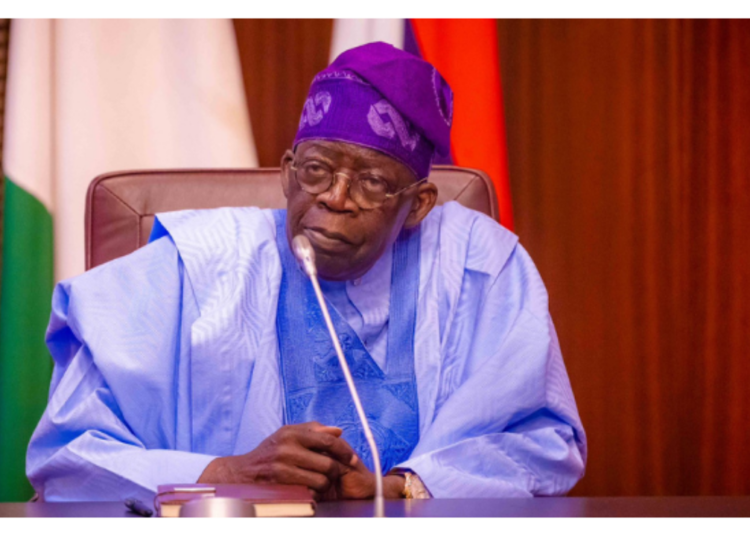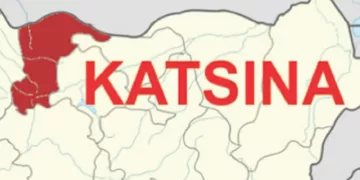Recently, President Ahmed Bola Tinubu, gave the defence ministers and service chiefs a period of one year to put an end to any form of insecurity in Nigeria. Taking up the challenge, the Minister of Defence, Abubakar Badaru, has been visiting some very senior military officers for ideas on how to get the job done.
Before now, there has been growing anxiety as a result of a spike in terror attacks and killings in some parts of the country with most Nigerians enveloped in a mood of apprehension, despondency and fear. Just recently, the Nigerian Army lost about 37 men, including a major, a captain and other ranks in an ambush in Niger state. As unfortunate as that tragedy was, it compounded reports that the number of people killed in Nigeria surged year-on-year by 47 per cent to 10,366 in 2021, according to data compiled by SBM Intelligence using multiple sources of which Armed Conflict Location and Event Data Project (ACLED) was one.
Sadly, in our view, 1,743 Nigerians were reportedly killed in the first quarter of 2022, with Niger and Zamfara topping the list sourced and analysed by TheCable Index, a data and research arm of the media. It is regrettable, in our opinion, that in spite of the good efforts of the security agencies, terrorism, banditry, insurgency, cyber warfare, transnational organized crime, and communal conflicts have continued to pose significant challenges to national security.
The implication of this to the socioeconomic development of Nigeria cannot be over emphasized even as it continues to contend with forceful displacement of people from their communities. As at December 2021, the number of Internally Displaced Persons (IDP) in Nigeria rose from 2.1 million in 2018 to 2.9 million (UNHCR website).
As a newspaper, we know that without security, there will be no investment and without investment, there will be no economic growth and even food security will be threatened as farmers cannot go to their farms. The minister of state for Defence, Bello Matawalle, stated the obvious when he recognised that military might alone cannot guarantee lasting security and stability.
In our opinion, the challenge is gargantuan and the resources to do it is no longer readily available, throwing up the question of how can we ensure effective policing of this country? Under former President Muhammadu Buhari, the federal government was reported to have spent $1 billion extra budgetary allocation between 2017 – 2023, on tackling insecurity.
Far from being pessimistic over the one-year target given to improve security, we are of the view that the federal government needs to adopt a comprehensive and multifaceted approach to effectively tackle the prevailing security issues.
Of crucial importance, in our opinion, is the need for the government to look at ways of building worthwhile synergy among the various security agencies towards enhancing coordination to foster a united front in the efforts to combat insecurity.
We are of the view that our armed forces must be modernised and strengthened through investments in advanced weaponry, intelligence gathering capabilities, surveillance systems, and cyber defence infrastructure.
We can only see significant improvement if there’s commitment and sufficient manpower, and if we can deploy technology in the fight against criminalities, and drones in precise positions and locations of the bandits.
In the prevailing security situation in the country, we are compelled to raise questions regarding the much-advertised installation of CCTV facilities in major cities. What happened to the high-tech surveillance camera with our Sat 1 and Sat 2 in the orbit? We, sincerely, need to look at what we can do differently as a nation that will give us a better result even as we address the root causes of conflicts, promote social cohesion, and foster economic development.
This, in our considered opinion, requires substantial investment in education, healthcare, job creation, and infrastructure development that will enable the country to create an environment where extremism finds no fertile ground to thrive.
In this regard, there is an urgency to collaborate with relevant ministries and agencies to implement programmes that address the socio-economic disparities that often fuel conflicts and the need for stakeholders’ engagement including the private sector, civil society organisations, and local communities.
We recognise that the task of defending a nation does not fall solely on the shoulders of the defence forces or the government alone. It is, indeed, a collective responsibility that requires the active participation of every citizen. It is on this note we call on Nigerians to remain vigilant, report suspicious activities to the appropriate authorities, and support Armed Forces in their mission to protect the country.
Now that the ball has been set rolling, with security chiefs put on their toes, they should, on their part, explore regional cooperation in combating transnational threats.











